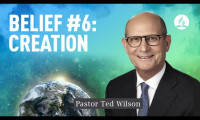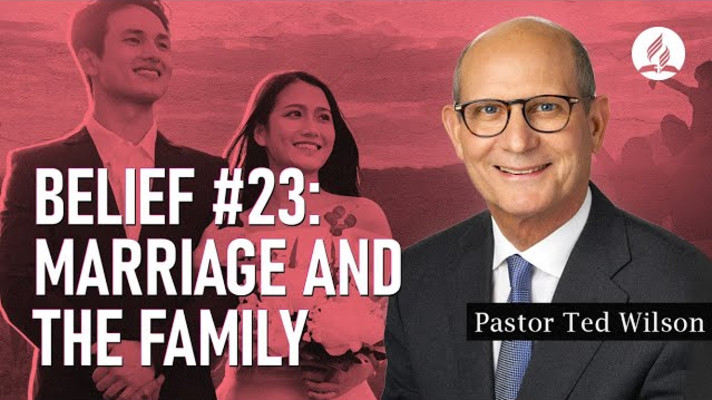Human Beings [How Did God Create Them?] – Pastor Ted Wilson
06 Mar 2022
In this video, Pastor Ted Wilson discusses the seventh fundamental belief of the Seventh-day Adventists—the nature of humanity.
In Psalm 8:3-5, we see a beautiful song glorifying God the Creator: "When I consider Your heavens, the work of Your fingers, the moon and the stars, which You have ordained, what is man that You are mindful of him, and the Son of Man that You visit him? For You have made him a little lower than the angels, and You have crowned him with glory and honor."
This passage shows the value God has placed on human beings. He has made us a little lower than the angels and crowned us with glory and honor. Indeed, we belong to Him.
Also, God created us perfect. "Let us make man in Our image, according to Our likeness. So God created man in His own image; in the image of God He created him; male and female He created them" (Genesis 1:26-27).
God formed man with His own hands from the dust of the earth. Then, He "breathed into his nostrils the breath of life; and man became a living being" (Gen. 2:7). Out of this, Adam was created. He was made of a body and the breath of life.
But God realized Adam needed a companion. "It is not good that man should be alone; I will make him a helper comparable to him" (Genesis 2:18). When Adam slept, God extracted one of his ribs and made it into a woman. As he woke up, he met Eve.
God blessed them and said, "Be fruitful and multiply; fill the earth and subdue it; have dominion over the fish of the sea, over the birds of the air, and over every living thing that moves on the earth" (Gen. 1:28).
God placed Adam and Eve in the beautiful Garden of Eden to live there forever in happiness. Unfortunately, they fell into sin after eating the fruit of the knowledge of good and evil. This transgression caused them and the entire humanity pain, misery, and death.
But God told them He would provide a plan of salvation for humanity, saving them from eternal ruin. To Satan, He said, "I will put enmity between you and the woman, and between your seed and her Seed; He shall bruise your head, and you shall bruise His heel" (Gen. 3:15).
Although Satan had brought sin into humanity, he would be defeated. A way of escape would be made for all people who would choose Jesus as their personal Savior.
This covenant of grace was made even before the fall. The members of the Godhead planned among Themselves to save the human race should it fall into sin. Ephesians 1:7 says, "In Him, we have redemption through His blood, the forgiveness of sins, according to the riches of His grace."
Indeed, we are precious in God's sight. We are the work of His creation and recreation through His salvation.
Our seventh fundamental belief states: "Man and woman were made in the image of God with individuality, the power and freedom to think and to do. Though created free beings, each is an indivisible unity of body, mind, and spirit, dependent upon God for life and breath and all else. When our first parents disobeyed God, they denied their dependence upon Him and fell from their high position. The image of God in them was marred and they became subject to death. Their descendants share this fallen nature and its consequences. They are born with weaknesses and tendencies to evil. But God in Christ reconciled the world to Himself and by His Spirit restores in penitent mortals the image of their Maker. Created for the glory of God, they are called to love Him and one another, and to care for their environment."
In connection to this, Steps to Christ, page 15, reminds us that "through transgression, the sons of man become subjects of Satan. Through faith in the atoning sacrifice of Christ, the sons of Adam may become the sons of God. By assuming human nature, Christ elevates humanity. Fallen men are placed where, through connection with Christ, they may indeed become worthy of the name 'sons of God.'"
What a wonderful Creator, Savior, Redeemer, and Friend we have in Jesus!
Read more about this fundamental belief at https://www.adventist.org/nature-of-humanity.






